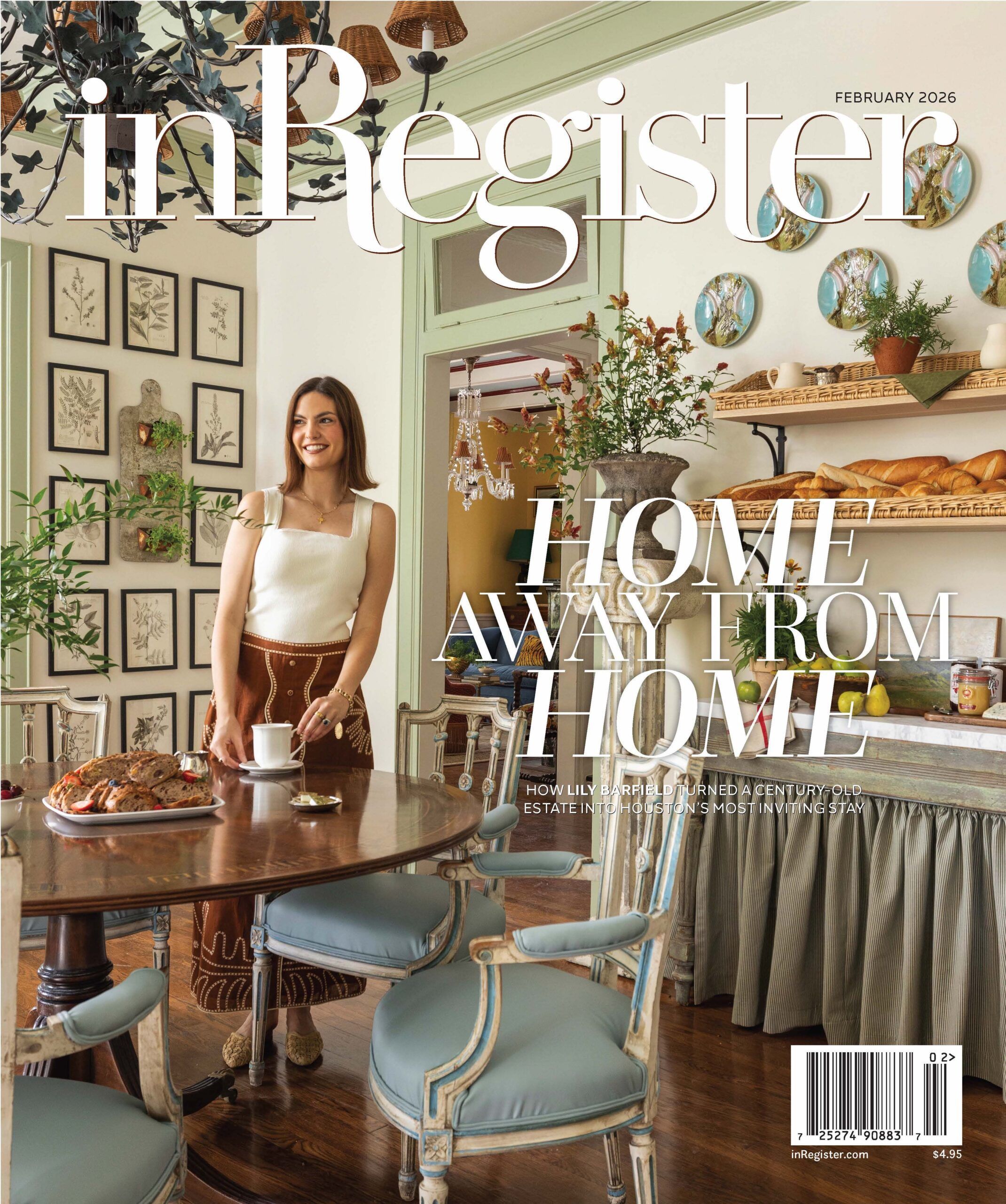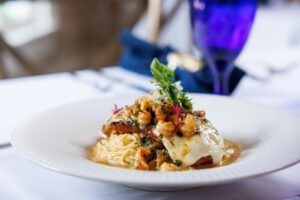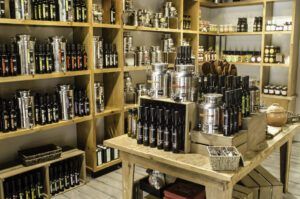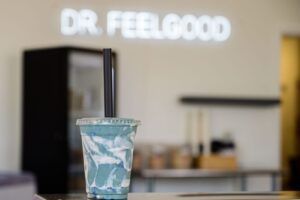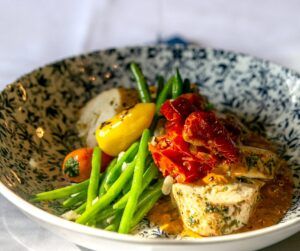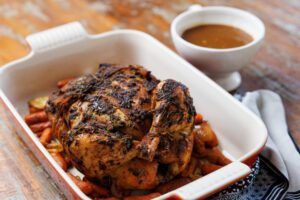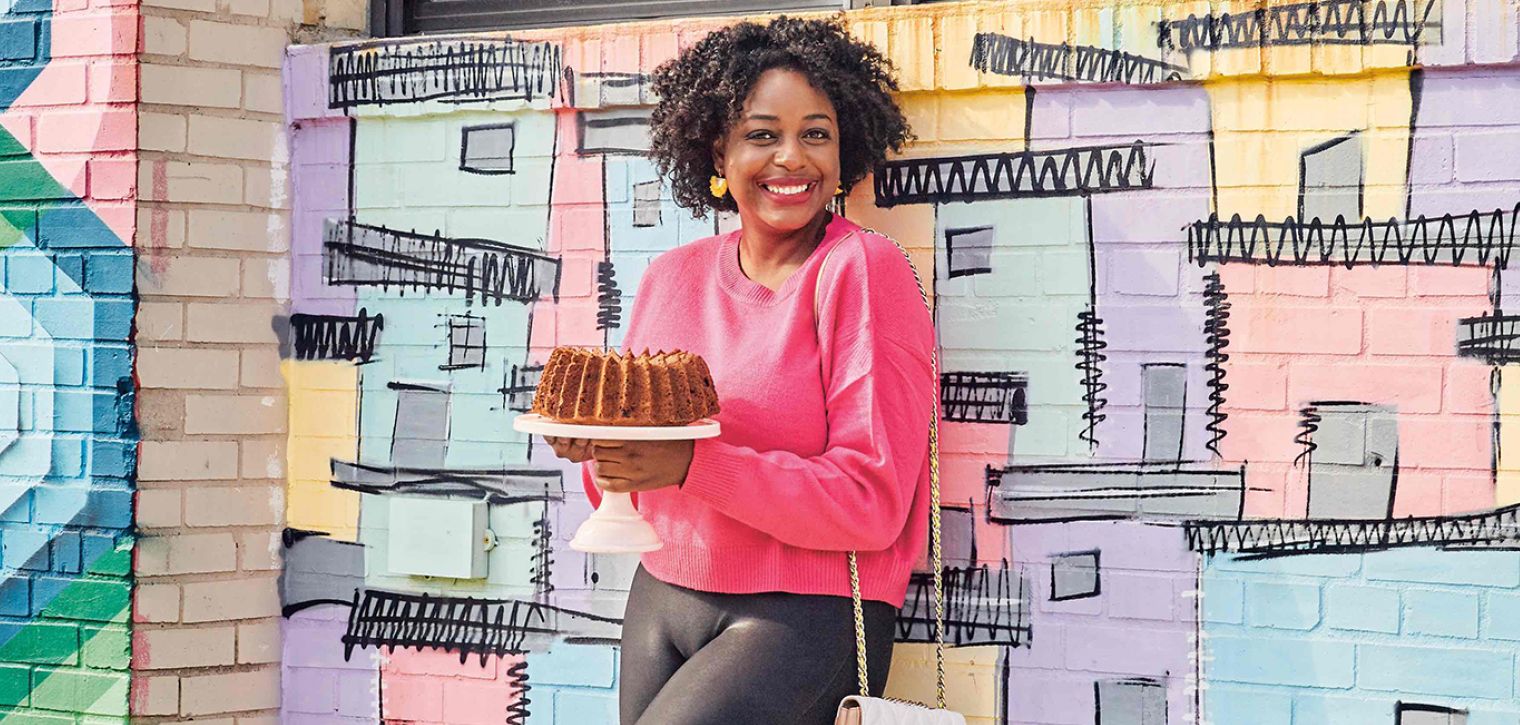
Lawyer turned baker Vallery Lomas is writing her own recipe for success in New York City
In 2009, during her final year of law school, Vallery Lomas started a baking blog that would change the course of her life.
It began as an outlet for creative expression while she pursued higher education, and it was the first hint that baking could one day become her livelihood. Up until then, it had never been on her radar, says Lomas, a Baton Rouge native who went on to win the third season of The Great American Baking Show, the stateside spinoff of the phenomenally popular British series.
But her historic win—Lomas is the first Black winner of the entire franchise—never aired: ABC abruptly canceled the show in December of 2017 (after broadcasting just two episodes), when major misconduct allegations surfaced against one of the judges, robbing Lomas of her hard-earned triumph and the inevitable success that would have followed.
Now, nearly four years later, she is proof-positive of living by her mantra: “When life gives you lemons, make lemon curd.” As a result of this adaptability, Lomas just debuted her first cookbook, Life Is What You Bake It, last month. Design brand West Elm launched a collaboration with her over the summer as part of its tastemaker series. She frequently contributes to The New York Times, appears on television shows like Today and Live with Kelly & Ryan, answers baking questions on Food Network and, through it all, continues to run her baking blog of more than a decade, Foodie in New York.
Her love of baking and all things food runs deep—especially growing up in the South. Baton Rouge has such a rich and distinct culinary culture, notes Lomas, who was raised amidst generations of talented family bakers, home cooks and prolific farmers. “That’s the thing about food and cultures where food is prevalent—in Louisiana, we love crawfish, but is it really about just the crawfish? No, it’s about sharing it with people in the community.”
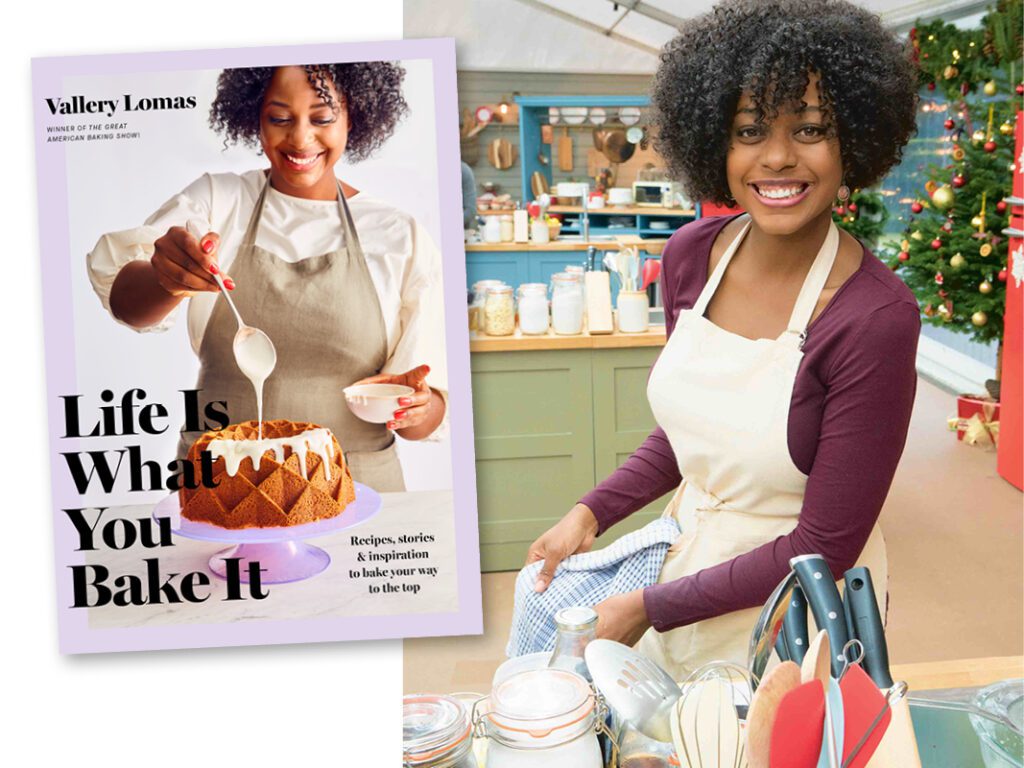
Especially influential in guiding her baking interests were her grandmothers Leona, who lived in Indianapolis, and Willie Mae, in Prairieville. Life lessons were imparted through baking (frosting three-layer cakes, using milk to make eggs fluffier) and by sharing their lived experiences, which Lomas pays tribute to in her cookbook.
“This book is an homage to my grandmothers, my mother, to so many other Black women who didn’t get to tell their story,” says Lomas. “I feel privileged and honored to share a little bit about who they were, how they lived and what they instilled in me—which I carry with me every day. They gave me much more than recipes.”
Charming vignettes from her own life are also woven throughout Life Is What You Bake It: Forming a long-distance bread club to try new recipes with her mother after attending a bread-making class together in Paris. Discovering her love of French culture (and pastry) as a teenager during a trip to the French Caribbean island of Guadeloupe. Taking weekend drives to pick blueberries at a farm in East Feliciana Parish.
Lomas moved to California for college and then stayed on for law school. By her third year, the Great Recession had hit, so rather than endlessly job hunting, Lomas went into baker mode, launching her blog and baking new recipes daily. After passing the bar, she decided to spend a year in France, visiting museums, spending weekends in Bordeaux and exploring pastry shops.
In 2011, Lomas landed in New York City, where she still lives today, eventually finding a job as an attorney. She practiced law full time for eight years, satisfying her passion for baking on the weekends and even running her own macaron business for a time.
In the summer of 2017, a casting agent for The Great American Baking Show reached out after coming across Lomas’ Instagram account. A whirlwind audition trip to Los Angeles (with baked goods in tow) led to Lomas being cast. Filming the show, over four hectic weeks in London, was equal parts exhilarating and exhausting.
“Getting that praise and feedback as a home baker,” recalls Lomas, “and to have Paul Hollywood tell me that my doughnuts were some of the best he’s ever had—it was one of those experiences where the highs were really high.”
Even though her impressive win was later reduced to a 90-second video reveal on Facebook, the press took notice—subsequently landing her coverage by major outlets from CNN to Food & Wine, an invitation to present at the James Beard Awards and, ultimately, her first book deal. The next few months will be filled with holiday appearances to showcase recipes from Life Is What You Bake It, virtual events, more blogging—and, deservedly, reclaiming the successes she had been destined for all along.
[caption id="attachment_103250" align="aligncenter" width="682"]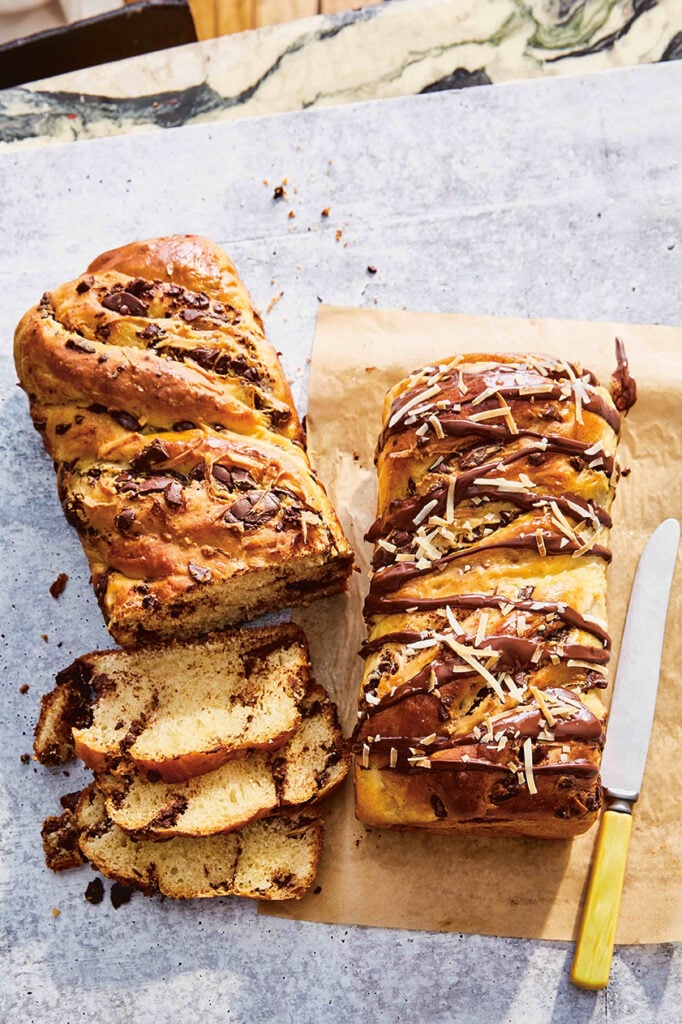 Reprinted from Life is What You Bake It. Copyright © 2021 by Vallery Lomas. Published by Clarkson Potter, an imprint of Random House. Photo by Linda Xiao[/caption]
Reprinted from Life is What You Bake It. Copyright © 2021 by Vallery Lomas. Published by Clarkson Potter, an imprint of Random House. Photo by Linda Xiao[/caption]
Zulu Babka
The Krewe of Zulu was always my favorite Mardi Gras Day parade. The Zulu Social Aid & Pleasure Club, the largest predominantly Black Carnival organization, commissioned a signature king cake from my neighborhood bakery in Baton Rouge, Ambrosia Bakery. Ambrosia’s Zulu King Cake is filled with cream cheese, chocolate, and coconut. This babka is inspired by that king cake, and this delectable blend of ingredients is irresistible!

